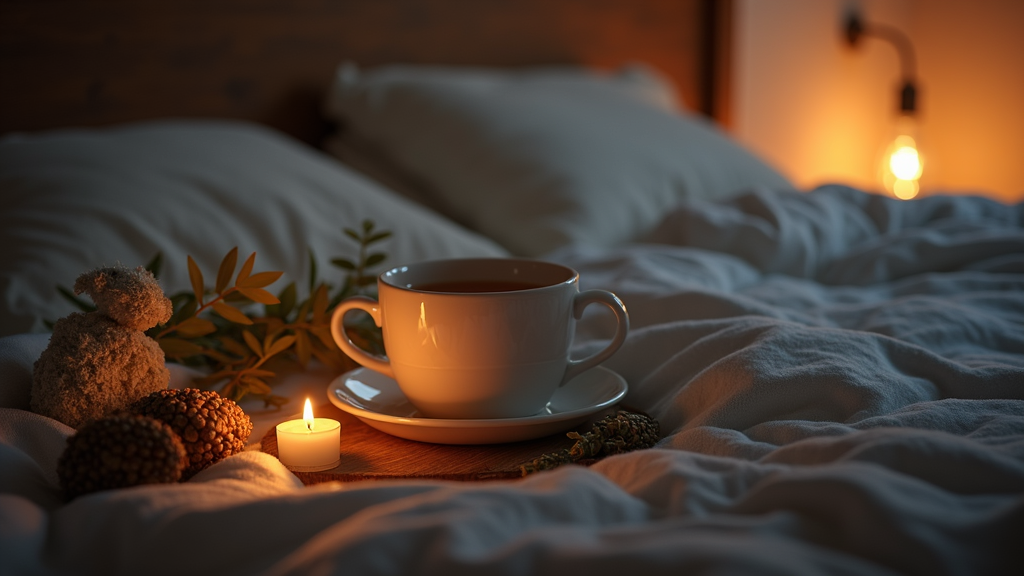Chronic insomnia can make nights feel endless and mornings tough. While melatonin supplements are popular these days, they don’t work for everyone. Some people experience side effects or even tolerance after a while. I’ve traveled this path too and have checked out some of the most practical melatonin alternatives available. This guide covers what I’ve learned, so you have more tools (not just another supplement) to truly support better sleep.

Understanding Melatonin and Why It May Not Work for Everyone
Melatonin is a hormone your body makes naturally to signal bedtime. When you take it as a supplement, the idea is to nudge your body into thinking it’s time to sleep. Sounds simple, but everyone’s body reacts a little differently. Melatonin works best for switching up sleep schedules (like jet lag or working nights), but it doesn’t always fix deeper sleep problems that chronic insomnia sufferers face.
Some people get grogginess, headaches, vivid dreams, or that dreaded hangover feeling in the morning from melatonin. Others just find it stops working after a while. That’s when searching for alternatives makes sense and gives your sleep toolkit more range.
Alternatives to Melatonin for Chronic Insomnia
There’s a wide variety of non-melatonin strategies and supplements to try. The right mix depends on what’s causing your sleeplessness—stress, a racing mind, or chronic pain can all play a role. Here are some options that are supported by research and worth exploring if melatonin isn’t working for you.
1. Herbal Sleep Aids
- Valerian root: This plant-based supplement is known for a calming effect. Some people find it helps them nod off faster. It comes as capsules, teas, or tinctures. Valerian has been trusted for centuries and tends to help people whose sleep struggles are tied to restlessness or anxiety.
- Chamomile: Sipping chamomile tea is classic. It’s a relaxing way to wind down at the end of a tense day. Chamomile works by binding to certain brain receptors, similar to mild antianxiety meds, which could explain why so many bedtime teas include it.
- Passionflower: This ingredient is showing up more in sleep teas and supplements. Passionflower helps calm nervous thoughts and light muscle tension. It’s a good option if your mind and body just can’t seem to slow down.
2. Magnesium for Sleep
Magnesium is crucial for relaxation and stress management. About half of all adults don’t get enough magnesium, which increases sleep issues and restless nights. Taking magnesium glycinate or citrate before bed has helped many people—including me—ease muscle tension and relax deeply. Check with your doctor before starting any new supplement, especially if you’re on medication.
3. Glycine and L-Theanine
- Glycine: This amino acid helps lower your body temperature and shifts your brain into sleep mode. You can take it as a powder dissolved in water about an hour before bed. Glycine doesn’t necessarily knock you out but helps you get deeper, more restorative sleep.
- L-Theanine: Found in green tea, this compound encourages alpha brain wave activity—the same state as meditating. L-theanine doesn’t put you to sleep directly but quiets racing thoughts, making it easier to let go and drift off.
“Here’s a little transparency: Our website contains affiliate links. This means if you click and make a purchase, we may receive a small commission. Don’t worry, there’s no extra cost to you. It’s a simple way you can support our mission to bring you quality content.”
4. Cognitive Behavioral Therapy for Insomnia (CBTI)
CBTI is the gold standard for chronic insomnia. It shows you how to switch out habits that hurt your sleep for ones that help. This approach covers building a reliable bedtime routine, managing anxious thoughts, and much more. Now, with online CBTI programs, help is easier to access than ever.
5. Sleep Hygiene Adjustments
Paying attention to your daily habits and sleep environment matters far more than most folks realize. Sometimes, a stuffy room, late night phone scrolling, or random sleep times are why insomnia just won’t loosen its grip. These DIY fixes are an essential part of the sleep improvement process.
- Turn off screens after dark: Blue light from phones and tablets tells your brain it’s still daytime. Try setting a screen curfew about an hour before bed. Instead, read, listen to music, or try gentle stretching.
- Stick to a consistent schedule: Going to bed and waking up at the same time each day (even weekends) helps set your body clock.
- Create a comfortable bedroom: A cooler temperature, blackout curtains, and cozy bedding makes your sleep space more welcoming. In noisy areas, white noise or earplugs help eliminate distractions.
- Get natural light during the day: Sunlight in the morning gives your body cues to produce the right hormones at the right time. This helps you wake up feeling alert and get sleepy again at night.
6. Relaxation Techniques and Mind-Body Approaches
- Meditation and mindfulness: Simple breathing exercises or apps like Calm and Headspace guide you to unwind after a busy day. Even a few minutes of focused breathing and mindfulness before bed can take the edge off insomnia.
- Progressive muscle relaxation (PMR): This practice involves tensing and relaxing muscle groups, starting at your toes and moving upward. PMR is backed by sleep experts as a good insomnia buster, especially if you’re tense or anxious at night.
- Gentle yoga or stretching: Restorative yoga and slow stretching right before bed help release physical tension and cue your body that it’s time to rest. YouTube has some 10 to 15 minute bedtime routines designed specifically for better sleep.
Common Snags and How to Troubleshoot Natural Sleep Strategies
Switching up your sleep routine takes time. Natural changes don’t typically work overnight, and it’s easy to get discouraged. Here’s what to do when things don’t go right from the start:
- Combine strategies: One tactic alone might not cut it. Try herbal tea while changing up your bedtime routine, or pair magnesium with gentle yoga to pump up results.
- Give yourself a few weeks: Your body likes routines. It could take two to four weeks before you really notice a difference after starting new habits or supplements. Keeping a sleep diary—tracking when you hit the hay, how long you take to fall asleep, and how refreshed you feel—can help you spot gradual changes.
- If insomnia just won’t quit: Persistent sleeplessness can be a sign of underlying problems, like sleep apnea, depression, or other medical conditions. Talking to a healthcare professional helps get to the root, and they can recommend more personalized treatments.
Real World Examples of Melatonin Alternatives in Action
- Herbal teas and a screen cutoff: A friend of mine swears by drinking valerian-chamomile tea and turning off screens by 10 pm. It might be simple, but this switch made a bigger difference for her than melatonin ever did.
- Magnesium and white noise: Someone else I know tried all sorts of things, but finally started mixing magnesium supplementation with a white noise machine. This combo helped make his sleep much less fragmented.
- CBTI and routine tweaks: Using an online CBTI course, keeping a sleep journal, and making his bedroom darker helped a neighbor manage insomnia over three months—with hardly any need for supplements.
Frequently Asked Questions
There are lots of questions about sleep hacks and natural alternatives. Here are a few you might have in mind:
Question: Do herbal sleep aids have side effects?
Answer: Most herbal sleep aids are gentle, but everyone reacts differently. Some folks get stomach upset from valerian or feel a little groggy the next day. It’s a good idea to start new remedies in small doses and see how your body reacts.
Question: Is it safe to use multiple sleep remedies together?
Answer: Combining a couple of nondrug remedies (like tea and magnesium) is generally safe. However, always check in with your doctor if you take medication or deal with health conditions.
Question: How long should I stick with a new sleep approach before switching?
Answer: Aim for at least two to four weeks. Routines need time to pay off, and consistent changes make the biggest difference.
Key Takeaways for Sleeping Better Without Melatonin
Addressing chronic insomnia means finding what works best for you, and often requires some trial and error. Melatonin alternatives like herbal teas, magnesium, mind-body practices, and simple nightly rituals can genuinely make a difference. Some work well solo, while others have a bigger effect in combination. Keep tracking your sleep and stick with new habits, but don’t expect instant results. For best outcomes, don’t hesitate to see a healthcare provider if you’re still struggling. With patience and the right game plan, better, more restful sleep is possible.
